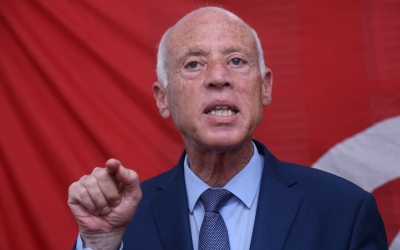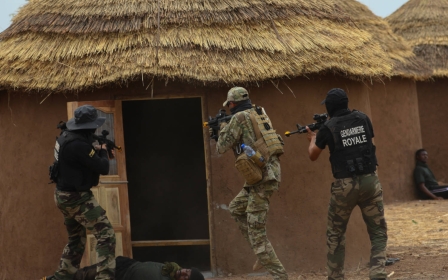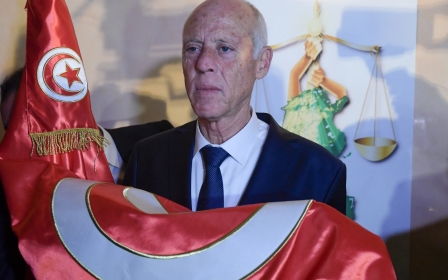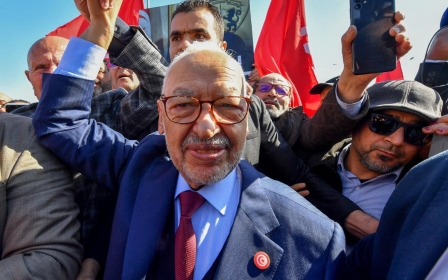Tunisia: Rached Ghannouchi sentencing part of 'aggressive crackdown' by Kais Saied
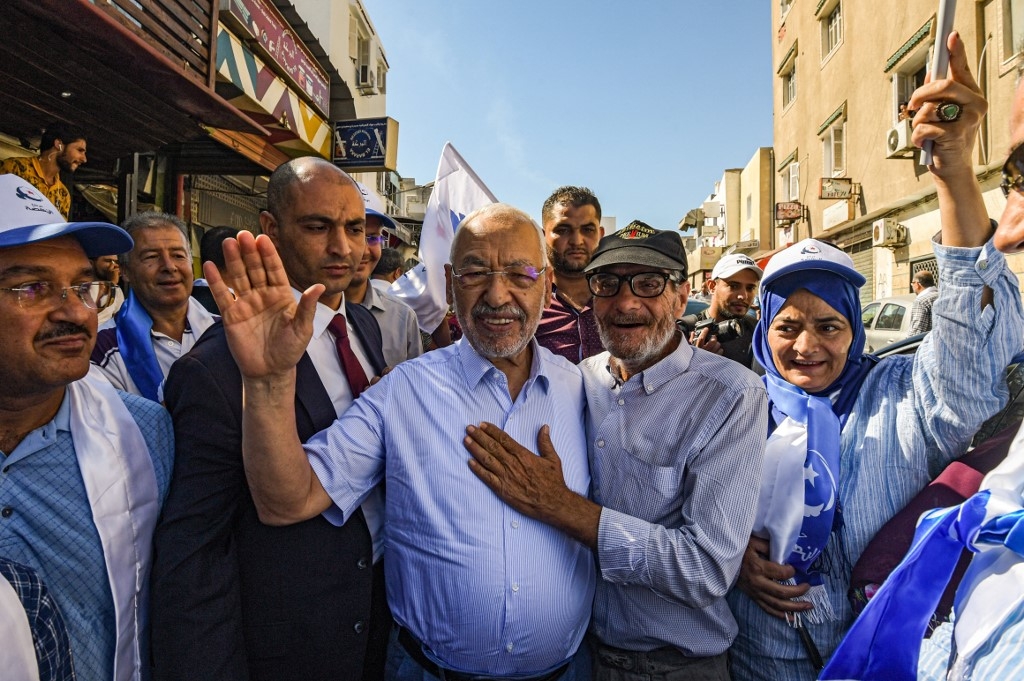
The sentencing of Rached Ghannouchi under Tunisia’s anti-terrorism laws underlines the aggressive crackdown President Kais Saied is overseeing in the North African country, leading rights group Amnesty International said on Thursday.
“Tunisian authorities are increasingly using repressive, vaguely-worded laws as a pretext for repression and to arrest, investigate and in some cases prosecute dissidents and opposition figures,” Rawya Rageh, Amnesty International’s acting deputy director for the Middle East and North Africa, said in a statement.
“The sentencing of Rashed Ghannouchi shows a growing crackdown on human rights and opposition and a deeply worrying pattern.”
Ghannouchi, the leader of Tunisia’s main opposition party, Ennahda, was arrested last month on the orders of a Tunisian judge and was under investigation by authorities for money laundering and incitement to violence, charges he denies and that his supporters claim were politically motivated.
On 15 May, Ghannouchi was sentenced in absentia to a year in prison in the most high-profile escalation of an authoritarian crackdown underway in the country since Saied took office.
New MEE newsletter: Jerusalem Dispatch
Sign up to get the latest insights and analysis on Israel-Palestine, alongside Turkey Unpacked and other MEE newsletters
Saied, a former constitutional law professor, was democratically elected president in 2019 with a vow to clean up corruption and cut through political chaos. However, in 2021 he shuttered parliament and began consolidating power. He has arrested journalists, activists and political opponents in what Amnesty International has decried as “a politically motivated witch hunt”.
On Wednesday, nearly 150 academics in Europe and North America - including from the universities of Oxford, Harvard, and Columbia - called for the release of Rached Ghannouchi and all political prisoners in Tunisia, amid what they described as a "fierce onslaught" against the sole democracy to emerge from the 2011 Arab Spring.
Ghannouchi was the democratically elected speaker of parliament that Saied unconstitutionally dissolved. He headed a moderate Islamist party that looked to build consensus with Tunisia’s secular parties in government.
The 81-year-old political leader was handed a prison sentence and a fine in connection with public remarks he made at a funeral last year where he praised the deceased as a “courageous man” who did not fear “a ruler or tyrant”.
“To sentence the leader of the country’s largest party based on public remarks he made a year ago – merely exercising his right to freedom of expression – is another indication of the political motivations behind these ongoing prosecutions,” Rageh stated.
'Silencing dissent'
As a fiery populist, Saied billed himself as an outsider who could take on Tunisia’s political parties, which oversaw a growth in democracy but also mounting economic challenges in the country of 12 million.
Despite promises to correct the downward trajectory, Saied has overseen skyrocketing inflation and shortages of basic goods. Early this year, he rejected an IMF loan that economists say is necessary to prevent the country’s economic collapse, claiming the lender was issuing “diktats from abroad”.
The US and its western partners have vacillated between scolding and engaging Saied.
The US cut military aid to Tunisia following the closure of parliament, but defence ties have held up since then. At the same time, Washington has cut back financial assistance for civil society groups and human rights promotion.
Washington’s defence ties with Tunisia have been in the crosshairs of Saied’s critics, but the military closed parliament on his orders. A political outsider, Saied has cultivated close ties with military leaders and last year named a former admiral and general as ministers.
Like other political prisoners, Ghannouchi was taken to the military barracks of an anti-terrorism unit. Saied has used military courts to prosecute political opponents.
Monica Marks, a Tunisia specialist and professor at New York University in Abu Dhabi, previously raised concerns with MEE about the potential for US taxpayer dollars to be used in Saied’s crackdown given the defence relationship.
“Right now, it’s not at all clear that US government money isn’t filtering into problematic uses like silencing legitimate political dissent,” she said.
Middle East Eye delivers independent and unrivalled coverage and analysis of the Middle East, North Africa and beyond. To learn more about republishing this content and the associated fees, please fill out this form. More about MEE can be found here.


